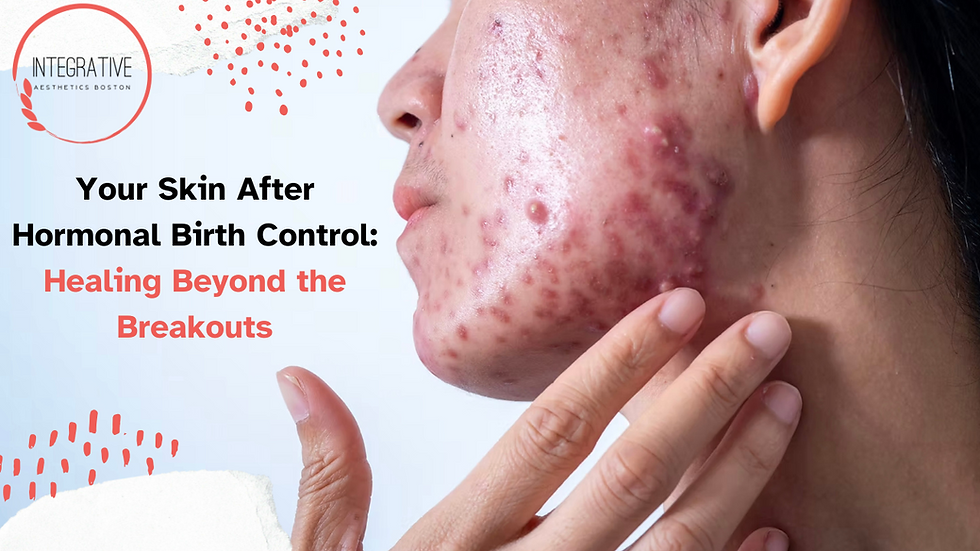Millions Trust Tylenol: Understanding Its Impact on Your Body
- Noemí Paola

- Sep 27
- 4 min read
Updated: 7 days ago
How Tylenol Affects Your Liver and Genes

When we think of Tylenol (acetaminophen), many see it as harmless—a quick fix for headaches, fevers, or menstrual cramps. It is one of the most widely used medications globally, found in nearly every household for pain and fever relief. However, what if your body isn’t equipped to process it efficiently? What if the same pill that helps you feel better is quietly overburdening your liver and setting off a cascade of downstream effects?
How Tylenol Works in the Body
Acetaminophen primarily reduces the production of prostaglandins, which are chemical messengers that signal pain and inflammation. Unlike ibuprofen or aspirin, it doesn’t reduce inflammation much, mainly targeting pain and fever. Typically, your body uses glutathione (GSH)—a master antioxidant—to neutralize acetaminophen’s toxic compounds and escort them out.
However, if glutathione levels are depleted or your genetic makeup hinders detoxification, these toxic substances can build up. This buildup can lead to toxicity and drive oxidative stress, akin to the slow rusting of cells. These chemical reactions gradually damage the body’s building blocks, including liver cells. Studies indicate that oxidative stress significantly contributes to skin aging and chronic skin conditions. When medications, alcohol, processed foods, or environmental toxins overload detoxification pathways, the skin often shows signs of this burden.
Why Genetics Plays a Role
Certain gene variations can affect how well you detoxify Tylenol:
Some people produce less glutathione, leaving them more vulnerable.
Others have enzyme variations that make them produce more of the toxic byproduct.
Impaired methylation or detox genes (like MTHFR or GST) can further slow clearance.
This is why two people can take the same dose—yet one feels fine while the other develops brain fog, fatigue, nausea, or abnormal lab results. In short, if your genetics already limit detox efficiency, Tylenol can hit harder than expected—sometimes even at “normal” doses.
Signs Your Body Might Struggle With Acetaminophen
If you notice any of the following signs, your body might be struggling with acetaminophen:
Feeling wiped out or nauseous after taking even small amounts.
A history of liver enzyme elevations on bloodwork.
Struggling with chronic oxidative stress conditions (skin flare-ups, fatigue, brain fog).
A family history of liver problems.
Impaired methylation or detox genes.
What About Children?
While Tylenol is commonly administered to children and during pregnancy, emerging research raises concerns about long-term effects. Recent analysis of available evidence has shown that frequent prenatal or early-life exposure to acetaminophen may be linked to a higher risk of ADHD and autism spectrum disorders.
Note: The available evidence does not establish causation, but rather an association. This emphasizes the necessity for caution during routine use in sensitive periods and underscores the importance of weighing the risks and benefits with personalized medical guidance.
Functional & Integrative Perspective
The issue isn’t that Tylenol is inherently evil; it relies heavily on your liver’s ability to detoxify and recycle glutathione.
Ways to Support Resilience
Here are some strategies to support your body:
Boost Glutathione Naturally: Incorporate foods like broccoli, Brussels sprouts, garlic, and sulfur-rich veggies into your diet.
Supplement Smartly: Consider NAC (N-acetylcysteine), liposomal glutathione, or glycine to help replenish glutathione stores (if safe and approved by your provider).
Test, Don’t Guess: Functional medicine labs can reveal your capacity to handle oxidative stress.
Lifestyle Medicine: Avoid alcohol, unnecessary medications, drugs, processed foods, and chronic toxin exposure, which compete with Tylenol for detox pathways.
When Tylenol Still Has a Place
Of course, there are moments when Tylenol is necessary—such as post-surgery, after an injury, or for a fever that needs managing. If you must use it, support your body with:
Staying well-hydrated.
Avoiding alcohol or unnecessary medications that tax the liver.
Taking NAC or glutathione support alongside (if safe and approved by your provider).
Using the lowest effective dose for the shortest time.
The Bigger Picture: Empowerment, Not Fear
In functional dermatology, I often remind patients that skin is a mirror of internal detox balance. If your liver is under pressure from medications like Tylenol, the skin may show it: acne, rashes, premature aging, or sluggish healing. It’s not about fear—it’s about awareness. For some people, Tylenol is fine when used occasionally and in moderation. But if you’re genetically predisposed to weaker detox capacity or if you’re already battling chronic inflammation, it might not be your best go-to.
If you’ve ever wondered how your genetics, detox pathways, or lifestyle may be affecting your response to medications like Tylenol or other drugs, you don’t have to guess. Integrative Aesthetics Boston offers functional testing, personalized detox support, and integrative skin therapies so you can stop masking symptoms and start restoring balance.
Schedule a consultation today to begin your journey towards safer, innovative, and effective treatments for issues such as menstrual cramps, persistent headaches, joint pain, and muscle aches, as well as solutions for skin health. Reserve an Initial Functional Skin Evaluation at Integrative Aesthetics Boston.
Let’s rebuild balance—internally and externally.
Love & Health,
Noemí Paola, Corrective Skin Care Master & Functional Medicine Practitioner
@Integrative Aesthetics Boston





